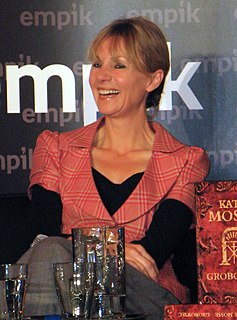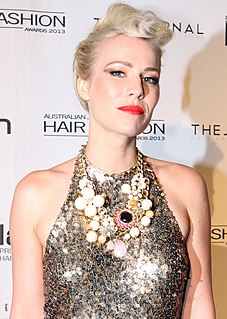A Quote by Kate Mosse
Related Quotes
Scientists often invent words to fill the holes in their understanding.These words are meant as conveniences until real understanding can be found. ... Words such as dimension and field and infinity ... are not descriptions of reality, yet we accept them as such because everyone is sure someone else knows what the words mean.
You don't realize how language actually interferes with communication until you don't have it, how it gets in the way like an overdominant sense. You have to pay much more attention to everything else when you can't understand the words. Once comprehension comes, so much else falls away. You then rely on their words, and words aren't always the most reliable thing.
Simply, if you're working with good material, then it's right there, and you don't have to try so hard as an actor; you don't have to do so much. Just let the material sit inside you and let it come out. Just say the words. That was the main thing that I learned from doing Aaron Sorkin's work - say the words, and everything else will happen.
Words are delicate instruments: How to use them so that, after having read the poem, the taste remaining is not of the words themselves, but of a thought, a situation, a parallel reality? If not used appropriately, words in poetry are like the ugly remains of food after eating. What I mean is that readers will reject words if they don't serve to shift attention from themselves to somewhere else.







































